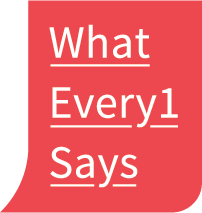Report by Rebecca Baker
Final Version Created June 2018
Citation
Baker, Rebecca. “U.S. Online News Sources.” WhatEvery1Says Project, http://we1s.ucsb.edu. July 3, 2018. http://we1s.ucsb.edu/u-s-online-news-sources/.
1. Overview
What is your area(s) of focus?
US-based Online News Sources
Why is this area of focus important to the WE1S corpus?
Online news, though far harder to archive in its “original” version as print news sources, is both a major component of large, traditionally print news sources (such as the LA Times) and a force to be reckoned with in their own right. It is often difficult to pinpoint the media scope and coverage as well, since people around the world can (and likely do) easily access these sites.
I believe it is accurate to say that most people (and certainly most people in the 18-35 age bracket) get most or all of their news online, which makes online news an invaluable resource for WE1S.
2. Source Scoping Process
How have you been selecting sources for the WE1S corpus? (e.g. collecting from particular databases, using “impact” lists, etc.)
For this particular area of focus, I am only considering US-based only and online only sources.
Even with these filters in place, this has been a challenge. A number of web “news” sources are disreputable at best, and have recycled content that is usually more concerned with celebrity faux pas than with world events.
As a result, although a few of the sources that I have been looking at contain a collection of news from several independent online sources (Alternet and Shadowproof, for example), all either have original reporting or link directly to sites that do
If you are using external lists to guide your selection of sources, include links here and indicate who produced them, for what purpose the list was produced, and any potential bias issues involved.
I did a general Google search for news sources that were both online and independent. The term alternative cropped up a lot when I did these searches, too—I surmise that it is because online-only and independent sources tend to see themselves as contra to large media conglomerates.
Because of the recent concerns about “fake news” and the general outcry about Internet hoaxes, etc., there were actually a surprising number of very helpful lists (from unexpected sites) of links to (mostly) good, independent online news sources.
I post two that I utilized here:
- [soapboxie.com/social-issues/A-Real-Need-for-the-Real-News](https://soapboxie.com/social-issues/A-Real-Need-for-the-Real-News)
- [fair.org/take-action-now/online-news-sources/](https://fair.org/take-action-now/online-news-sources/)
Potential bias of these lists, however, is that they tend to skew liberal.
3. Corpus Representativeness
How representative do you think your corpus is? (“Representativeness” can be interpreted and addressed in a number of ways, so tailor it to be most productive for your area.)
Since many of the major news sources that we already have in the corpus will cover a lot of the same ground with regard to major events, I think that the corpus I have gathered for online news is fairly representative of the online, indy news “climate.”
However, there remains the question of political representativeness. With the exception NewsMax and Reason.com, almost all of my sources were either outspokenly progressive or left-leaning while claiming to be neutral.
What challenges in achieving representativeness have you encountered?
To be honest, given the current political climate, I had a difficult time finding indy conservative sources that did not have overtones of fascism and racism. Although studying these sources would certainly be interesting from a sociological and political science perspective, it is my understanding that hate speech is not a valid part of the WE1S project corpus.
There is also the fact that all of the sites I collected data for were explicitly political. I believe that it is hard to separate online news from politics, since these sites, by definition, cannot have “local” concerns beyond that of the country at large, and since major events reporting is already covered by large media conglomerates.
Provide a tally breakdown of the various facets of sources in your area of focus that WE1S is considering as possible measures of overall corpus “representativeness” (for example, by source or media type, nationality, region, political orientation, identification with specific racial, ethnic, and gender audiences, etc.)
Distribution Method
Online: 11
All are explicitly political sites
Self Identification
1 conservative
1 libertarian
2 centrist
7 liberal/progressive
Mostly original reporting; many of the liberal/progressive sites are partners and swap stories with one another.
4 sites where material from several sources explicitly comes together
4. Reflections
What challenges or difficulties have you encountered in the source selection or collection process? Do you anticipate any challenges emerging from your work going forward?
The issue that concerns me the most is the fact that, although online news generally keeps all of its past stories archived on the website, there is usually no easy or systematic way of searching by date or downloading multiple articles at once. I hope that the .html can be downloaded—otherwise, we may be stuck manually copy/pasting.
In addition, the search feature on the websites is usually a bit fiddly, and doesn’t always respond to Boolean connectors. “Humanities” and “humanity” and “human” all interchangeable, which will be a problem when it comes to resource collection.
All of the material we want is there, but it lacks the organization and accessibility of a proper database. We will either have to get creative with ways to solve this problem, or we face an unenviable amount of grunt work to collect these sources in the future.
5. Research Scan
Conduct some preliminary research on the questions or challenges that you provided in sections three and four.
It is interesting that, although the current popular assertion is of a liberal “bias” in the media, nearly all of the indy or self-described “alternative” sites that I ran across were liberal.
It is currently fashionable for conservative news outlets to paint themselves as the victim, the silent majority, and the common-sense alternative to liberal decadence. As a result, the Overton Window has shifted–major news outlets, accused of liberal bias, become more conservative. Those who have always been conservatives consequently move further to the right, dipping into warmongering fascism and violence and reserving terms like “RINO” and “cuck” for people who they do not believe are conservative enough. Extreme conservative groups such as the Tea Party and, more recently, the Alt-Right openly espouse xenophobic, populist, even fascist views. The election of Donald Trump did not help matters.
As a result, non-conservative independent news sources (even ones that claim to actually be centrist) are increasingly isolated from major news and forced to self-identify as “alternative.”
By the way, there is not actually any such thing as the “Alt-Left.”
Have other scholars reflected on these issues? Are there publications that address these problems? Has research been conducted on how to overcome these challenges or at least acknowledge them productively?
Though I have not read them myself, there are some books available at the UCSB library that address these issues and look promising. I list a few of them here:
- Conservative Bias: How Jesse Helms Pioneered the Rise of Right-wing Media and Realigned the Republican Party by Bryan Hardin Thrift
-
Guardians of power : the myth of the liberal media by David Edwards and David Cromwell
-
Politics and the Media by Debra A. Miller
6. Additional Comments/Reflections
Include any other issues or questions that you have encountered that may not fit into any of the above categories.
There are a number of small online sources that have already been gathered by other RAs, that are non-US based, or that are the counterparts of larger, print-based sources. I expect that whatever solutions we come up with to address the issue of collecting data from my online sources will apply equally to them.


